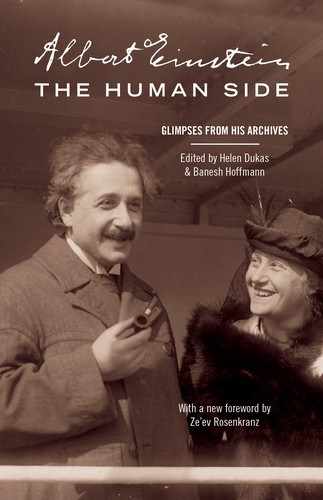IN Dresden a government official, who spoke of himself as a politician and an Adlerian psychotherapist, was planning a book to be based on psychoanalyses of important people. In this connection, on 17 January 1927, he wrote to Einstein in Berlin to ask if he would allow himself to be psychoanalyzed.
It is not known if an answer was actually sent, but, on the letter, in German in Einstein’s handwriting, is the following draft of a reply:
I regret that I cannot accede to your request, because I should like very much to remain in the darkness of not having been analyzed.
__________
At first, Einstein was not favorably inclined toward the work of Sigmund Freud, though later he changed his mind. On Einstein’s fiftieth birthday, Freud, like many others, sent him greetings. In his note he spoke of Einstein as “you lucky one” [“Sie Glücklicher”], a phrase that aroused Einstein’s curiosity. Einstein in Berlin replied on 22 March 1929 as follows:
Revered Master,
I thank you warmly for having thought of me. Why do you stress my “luck”? You, who have slipped under the skin of so many a man—indeed, of mankind—have nevertheless had no opportunity to slip under mine.
With highest regard and cordial good wishes,
In reply, Freud explained that he regarded Einstein as lucky because nobody unfamiliar with physics would dare to judge his work, whereas Freud’s own work was subject to judgment by everybody, whether familiar with psychology or not.
![]()
